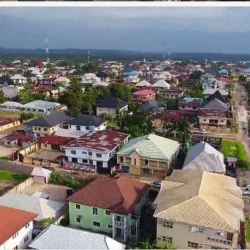For the Igbo’s in the Mbaise area the first encounter with the British was around 1900.

This followed the Slavery Abolition Act 1833 in Britain which abolished the slave trade,
The shift in economic interests, prompted the British, who hitherto had remained at the West African coast, to advance into Igbo land.
The aim was to exploit alternative products to trade in Europe, such as palm oil.
From that point onwards, following a series of wars and battles with the British, the social, economic, political, as well as the religious fabric of Mbaise changed dramatically.
The core traditional values and institutions, which defined the Igbo community, were stripped bare, leaving Igbo’s with a distorted sense of identity.
The transformation, which created the modern day Mbaise, comes as a result of the influence, from the pre-1900 transatlantic slave trade and the colonial period under the British 1900-1960.
It was during the Aro Expedition, which lasted from November 1901 to April 1902, that the British first encountered the people of modern day Mbaise.
In November 1901 the British, led by Lieutenant-Colonel H F Montanaro, launched an attack; expedition on the Aro Kingdom.
The aim of the Aro expedition, as specified by Moor, was to end internal slavery as well as extend control beyond the West African coast and take over trade hinterland.
The Aro people had been in control of the political and economic trade for more than two centuries.
From the perspective of the Aro people, the British who up till now had remained on the coast, wanted to move inland.
Their aim was to eliminate the Aro people as intermediaries and take control of trade with a view to increasing profits.
On their way to attack the Aro people, British soldiers marched through Ahiara, forcing men to carry their food and military supplies.
The people of Ahiara, resented the imposition of forced labour by a foreign army, who trampled through their lands without consultation.
The Aro Confederacy was finally defeated in April 1902 after seven fierce battles in Oguta/Owerri area (November 1901), Esu Itu (December 1901), Arochukwu (December 1901), Edimma (January 1902), Ikotobo (January 1902), Ikorodaka (February 1902), Bende (March 1902).
The powerful lgbo oracle was destroyed by the British known as Long Juju, the supreme deity.
Following the defeat of the Aro kingdom in 1902, Sir Ralph Moore held a meeting on May 11, 1902, where he inaugurated a native council and appointed Harold M Douglas as the first District Commissioner of the newly created Owerri District.
Reference
mbaiseonline.com/history/igbo-resistance-british-colonialism-mbaise/
